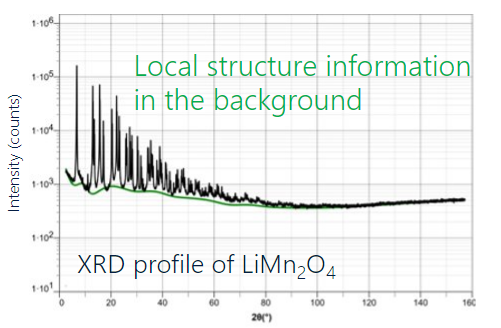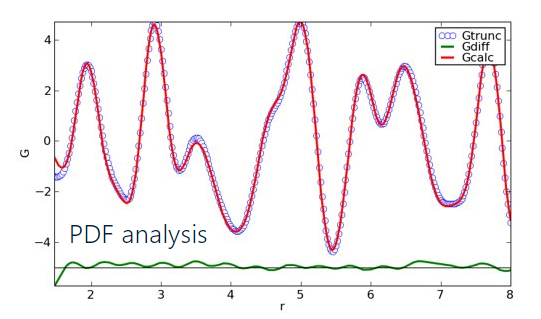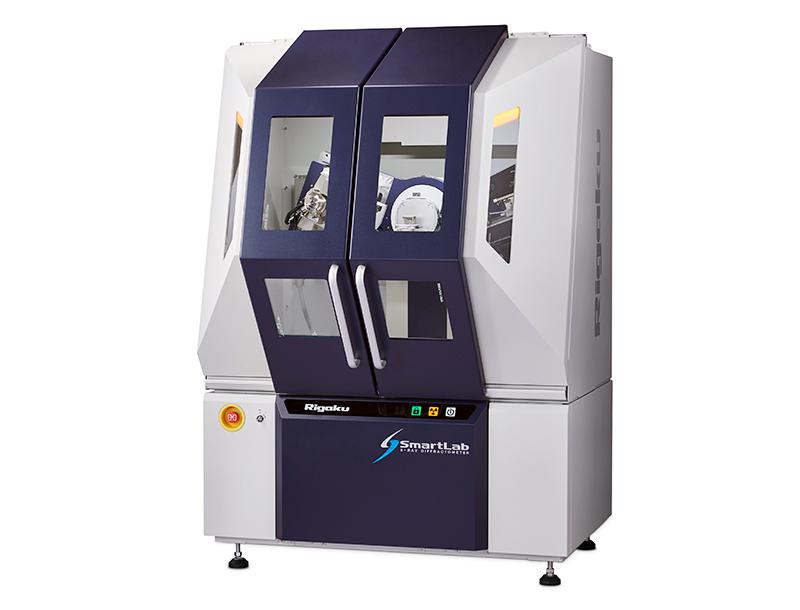PDF ANALYSIS OF LMO WITH XRD
Introduction
Rietveld refinement is routinely used for crystal structure analysis from powder diffraction data. As with a single crystal structure solution, Rietveld refinement determines an overall average structure, with local deviations from the average structure appearing as average disorder contributions. Pair Distribution Function (PDF) analysis, on the other hand, allows a more detailed investigation of local versus average order and can reveal information concerning changes in packing arrangement as a function of the distance between atoms. PDF analysis is a total diffraction technique making use of analytical background intensity, containing local structure information, as well as intensity from diffraction peaks and amorphous halos. As an illustrative comparison between Rietveld and PDF analysis, consider the results for a Lithium Manganese Oxide (LMO) cathode material presented below. When analyzing the X-ray powder diffraction data collected on LMO with cubic as the average structure or with orthorhombic as the average structure, there is no difference in R value when performing Rietveld refinement. Rietveld refinement with a single average crystal structure is unable to differentiate between orthorhombic or cubic average symmetry. Utilizing PDF analysis on the same powder data looking at the relatively short-range atom-atom interactions out to 8Å, there is a significant difference in R-value between cubic and orthorhombic structures, with orthorhombic symmetry giving the better solution. PDF analysis can provide additional insights into the local atomic packing arrangements that are not accessible when utilizing Rietveld analysis.
XRD profile of LiMn2O4

PDF profile of LiMn2O4

Analysis result of LiMn2O4 by Rietveld and PDF refinements
| Crystal System | Rietveld RWP(%) | PDF RW(%) |
| Cubic | 7.0 | 12.4 |
| Orthorhombic | 6.8 | 6.9 |



